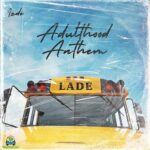Zenzile Mama Africa, Miriam Makeba (1932-2008), was without a doubt one of South Africa’s true legends. Miriam Makeba was born in Johannesburg on March 4, 1932, and was barely 21 years old when she joined the Manhattan Brothers and shot to fame in her home country. Miriam Makeba’s career was taken to new heights in a short period of time. She became the first African performer to win a Grammy Award in 1966 with the album An Evening with Harry Belafonte and Miriam Makeba. When she released her highly acclaimed Pata Pata in 1967, which included the worldwide hit “Qongqothwane” (better known as the “Click Song”), her star soared even higher. Her autobiography was released shortly after that.
Miriam Makeba used her voice to amuse, but she also used it to provide a voice to millions of repressed South Africans who were victims of apartheid. She had to pay a severe price for her conduct, which included losing her South African citizenship. The South African authorities barred her from returning to her homeland and stripped her of her citizenship after she starred in the anti-apartheid documentary Come Back, Africa in 1960.
This incident did not deter her from speaking out against the apartheid administration. Miriam Makeba often addressed the United Nations General Assembly on the tragic developments in South Africa as a United Nations delegate of Guinea, where she was granted shelter, between 1964 and 1975.
In the meantime, she continued to sing, putting South African music on the map. Makeba collaborated with musicians such as Joe Sample, Stix Hooper, Arthur Adams, and David T. Walker of The Crusaders over the years. She worked with Paul Simon and Ladysmith Black Mambazo on their worldwide Graceland tour in the late 1980s, and with Odetta and Nina Simone on their One Nation tour in 1990.
After Nelson Mandela was released from jail, Makeba returned to South Africa in December 1990, more than thirty years after she had been exiled. She gave her first concert in her homeland in three decades in April 1991.
Makeba had a busy few years after that. She played the mother of the titular character in the award-winning South African musical Sarafina! on the 1976 Soweto youth revolt. For the Tour Of Hope, she reunited with her first husband, musician Hugh Masekela. She also performed at the Vatican’s Nevi Hall as part of the Christmas In The Vatican, a worldwide streamed concert. Makeba’s first studio album in a decade, Homeland, was nominated for a Grammy in 2000. She and Sofia Gubaidulina shared the Polar Music Prize in 2002 for their outstanding contributions to the production and growth of music.
Miriam Makeba released ten albums after returning to South Africa. She published Reflections in 2004, at the age of 72, to commemorate the tenth anniversary of the end of apartheid in South Africa. In the same year, Makeba was ranked 38th among South Africa’s Top 100 Greats. In 2005, she embarked on a 14-month farewell tour across the world, performing in every country she had visited during her life.
Miriam Makeba is, without a doubt, one of (South) Africa’s most revered, adored, and valued treasures, with a career spanning more than four decades.
She died at the age of 76 on November 10, 2008, after becoming ill near the southern Italian town of Caserta after performing at a concert against organized crime.

